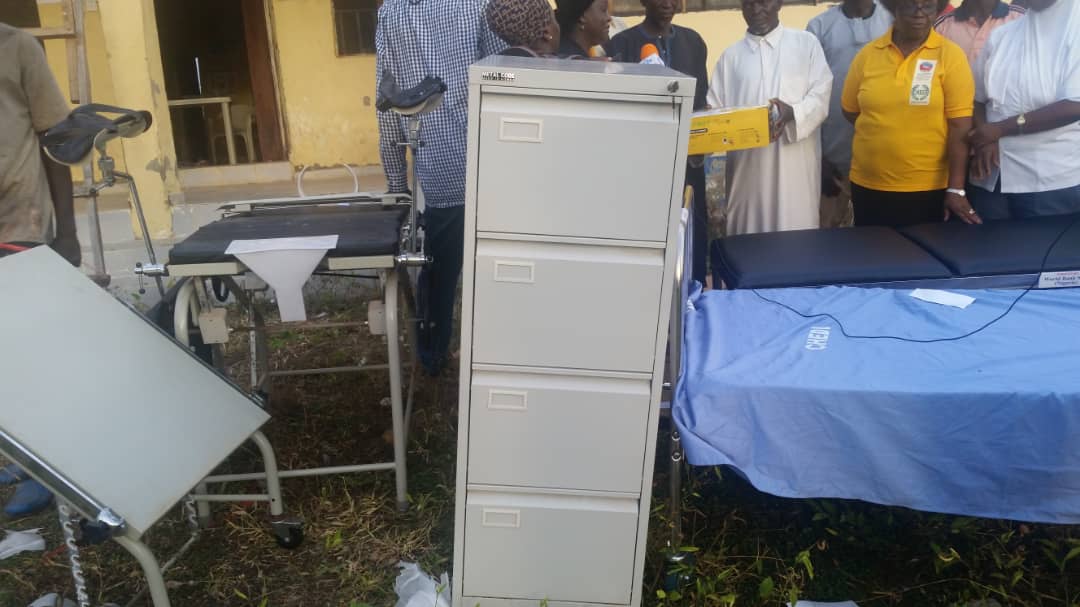A non-governmental organisation has donated facilities to equip primary health centres in rural communities of Abuja.
Three health centres—in Yebu and Yewuti in Kwali and Wuna in Gwagwalada—are among the first few to receive equipment donations by the Citizens Health Education and Development Initiative (CHEDI).
CHEDI plans to donate to a total of six health centres in the FCT and Nasarawa, where it says its need assessment showed dilapidation.
The donations are funded by money pooled from the salaries of World Bank staff implementing the bank’s Community Connections Campaign in Nigeria.
The equipment include solar lighting systems, delivery beds, examination couches, tables and chairs, examination trolleys, filing cabinet, and hospital beds and beddings.
Kuran Bako is the second in charge of the primary health centre in Yewuti—and one of only two people working there.
“Sometimes, we have to take delivery by night, without any source of light,” he said of the past.
“I am delighted. In any facility, there is no way a staff can work without facilities. It is like a farmer going to farm without hoe and cutlass.”
Haruna Ibrahim, with a diploma in community health, is the only person working at the primary health centre in Yebu, and says the centre needs manpower to go on.
“I am cleaner, attendant, head of facility, record keeper,” he emphasizes.
“We don’t have water here. We fetch water from nearby home or borehole.”
Aidatu Tahiru once worked in a different primary health centre that was equipped. She said she found her new post at Wuna inadequately equipped when she assumed duty there upon transfer, not even a bed.
“I had to use my money to do the local ones, with wood. It is what we have been managing for long,” she said. She is one of three people working there.
“Many organizations have been coming here, filling the forms, making promises, but nothing has come out of it.”
Executive director of CHEDI, Selina Enyioha, said, “We should not neglect our rural areas. This is where the attention is needed. We should make them a priority.”
She added that the use of the equipment donated could only be sustained if the communities take ownership and guarantee security for the facilities.

 Join Daily Trust WhatsApp Community For Quick Access To News and Happenings Around You.
Join Daily Trust WhatsApp Community For Quick Access To News and Happenings Around You.


